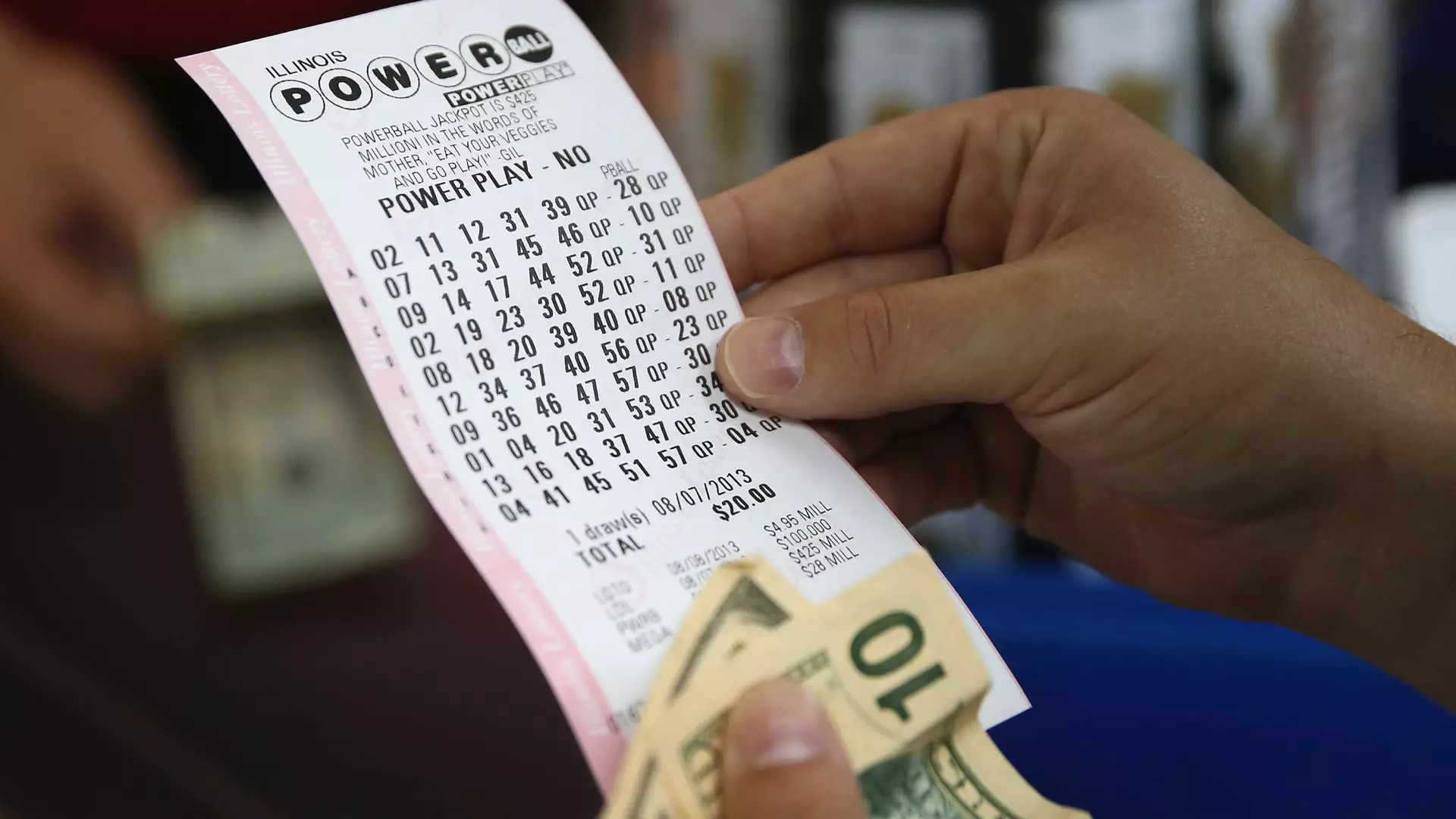Every few months, headlines erupt with tales of life-changing lottery jackpots, luring millions into dreams of instant prosperity. The recent Powerball draw, boasting an astronomical $1.787 billion prize, underscores the persistent allure of hitting the jackpot. Yet beneath the surface of glittering prizes, lies a sobering reality: instant wealth is often a double-edged sword, masking the deeper, systemic issues about economic stability and responsible financial planning. The promise of millions can distort priorities, leading many to gamble their financial futures on luck rather than sustainable growth or strategic investing. It’s easy to get caught up in the fantasy that a sudden windfall can solve all problems, but history and logic warn us that such illusions often lead to financial downfall rather than security.
The Distorted Incentive: Choosing Between Lump Sum and Annuity Is a Trap
With the recent jackpot split between winners in Missouri and Texas, the common assumption is that everyone would choose the lump sum, the immediate payout. Powerball officials and legal experts agree that this is a misconception. Most winners opt for the lump sum, but that choice may be shortsighted. A structured annuity, despite its seemingly less attractive total payout, offers a safer, more manageable path to wealth — especially for those lacking financial discipline or expertise. Yet the allure of a massive, immediate cash influx often overrides prudent considerations. Powerball winners who do not understand the implications of their options risk squandering what could otherwise be preserved and grown through disciplined investment. The underlying issue here is a societal obsession with immediate gratification, which blinds many to the benefits of long-term financial planning.
The Tax Burden: The Hidden Toll on Dreamers
Winning a colossal sum is not just a matter of celebration; it’s also a brutal confrontation with taxation. Federal taxes automatically take a hefty 24% from the prize, a figure that already chips away at the initial sum. The reality is even starker when considering the highest tax brackets. For 2025, winners face a 37% federal income tax rate on earnings surpassing certain thresholds, which can wipe out a significant portion of their newfound wealth. State taxes compound the issue: Missouri, for example, imposes additional levies ranging from 4% to 4.7%, meaning multi-million-dollar losses for those who do not reside in tax-friendly states like Texas, which currently exempts lottery winnings from state taxes. Such disparities highlight how systemic tax policies reinforce economic inequalities, favoring those with means to relocate or maneuver around burdensome taxation, often at the expense of everyday Americans dreaming of a comeback.
The Societal Impact: Obsession with Wealth in a Society Struggling for Equity
While a few fortunate winners celebrate their windfalls, the broader societal context reveals troubling dynamics. The obsession with lottery jackpots amplifies a harmful narrative: that wealth is a matter of luck, rather than effort or systemic fairness. This mindset feeds into a cycle where individuals chase improbable prospects, wasting resources in hopes of rapid wealth, instead of pursuing sustainable income and education. Moreover, the lottery industry itself is a reflection of economic disparities—targeting lower-income communities with the promise of quick riches, yet systematically funneling their money into state coffers with little regard for their socio-economic realities. This dynamic perpetuates a distorted view of wealth, one where gambling replaces investments in education, infrastructure, and social programs that could create genuine upward mobility.
Reimagining Wealth: Toward a Fairer and More Equitable System
Achieving financial security in our society requires a fundamental shift in how we view wealth and opportunity. It’s time to move beyond the illusion that luck defines success. Instead, we should focus on policies that promote economic resilience: better access to quality education, fair wages, and social safety nets that reduce dependency on chance. For individuals, this means recognizing that true wealth is built over time through disciplined savings, smart investments, and responsible financial management. Relying on a lottery as a safety net fosters false hope and entrenches cycles of poverty, eroding the social fabric that could support equitable growth. As society, we should challenge the narrative that luck is the key to prosperity and concentrate efforts on creating systems where financial stability is attainable through effort and policy reforms, rather than the fleeting allure of a massive jackpot.

